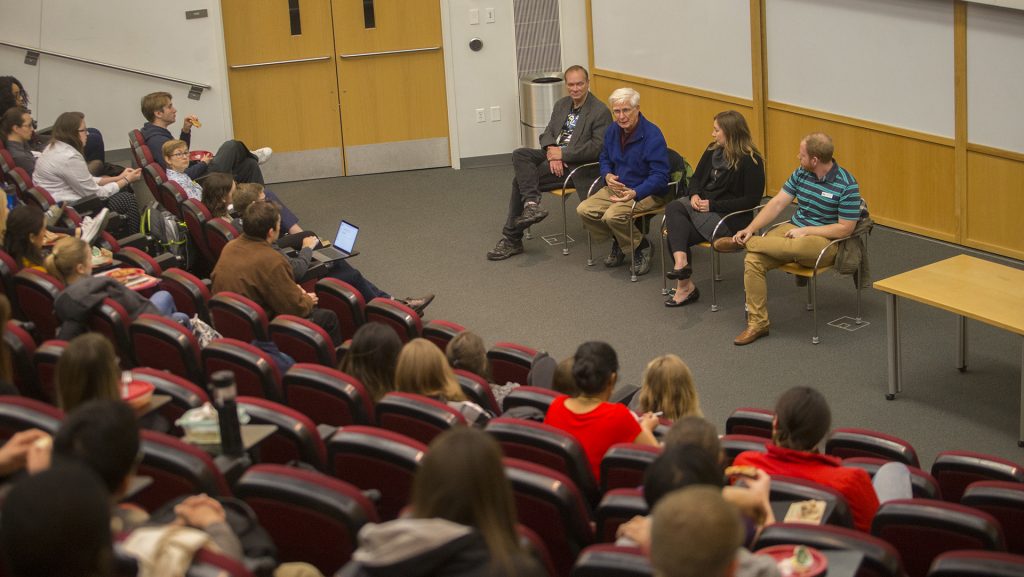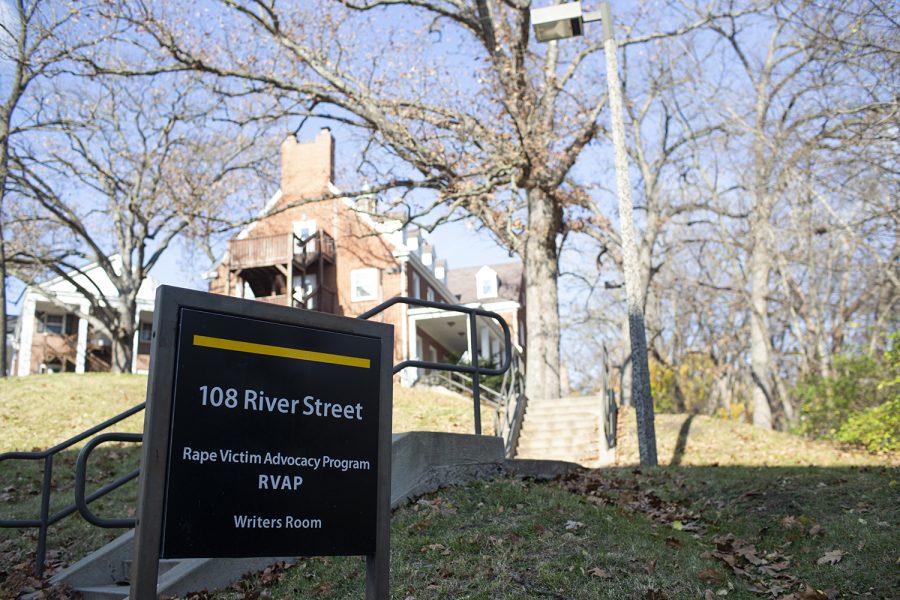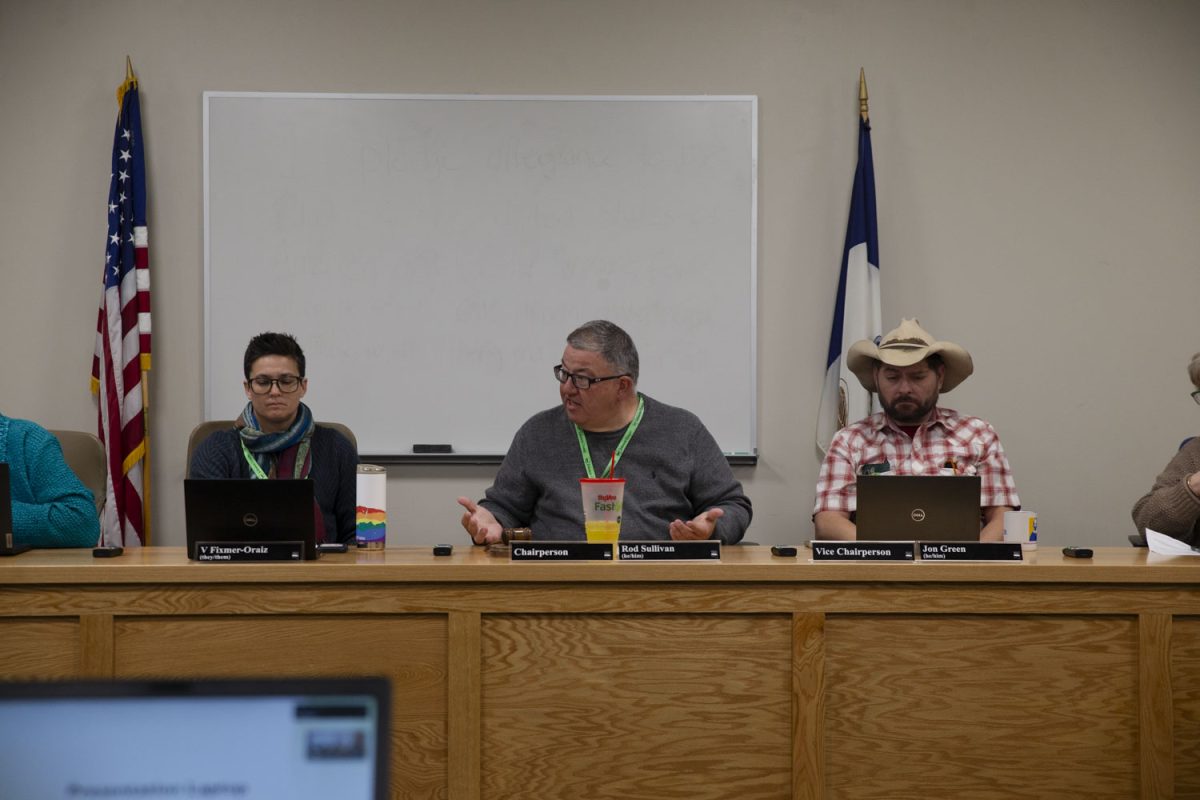This week is national Hunger and Homelessness Awareness Week, and a discussion panel on the afternoon of Nov. 15 focused on the issue of homelessness from a health-care perspective.
By Paige Schlichte
[email protected]
The week before Thanksgiving is recognized as National Hunger and Homelessness Awareness week, and a panel discussion at the Medical Education & Research Facility on Wednesday afternoon took aim at the topic of homelessness in Iowa City, particularly through the lens of shelter and health care.
The panel was organized by two University of Iowa Carver College of Medicine students, Kathryn Marcus and Brady Campbell. They are a part of the medical school’s William Bean Learning Community, which is associated with Shelter House.
“Being a part of the medical school, we’re trying to get a better feel for how we can best serve this patient population,” Campbell said. “The homeless population is a group of people who tend to get left behind and forgotten about, but they have the same basic right to health care as anyone else in the community.”
Campbell said the more awareness future medical professionals have, the better health care they can provide for the homeless.
RELATED: New grant to assist homeless Johnson County residents
“Everyone is going to see this patient population at some point, but if they have false stigmas on why people are homeless, from a medical perspective, it’s harder to provide quality care,” Campbell said. “When applied to the greater community, our aim for this panel is to give people a new understanding and respect for the homeless.”
According to the UI College of Public Health and the Institute for Community Alliances, an estimated 11,890 Iowans were homeless in 2016.
Alex Stanton, Shelter House’s communication coordinator and one of the panelists at the event, said given the broad spectrum on what it means to experience homelessness, it is hard to pinpoint exactly how many people experience homelessness in Johnson County. However, a United Way of Johnson and Washington Counties report from 2009 reported that 405 people experience homelessness on any given night in Johnson County.
Stanton noted that Shelter House has provided shelter to 874 men, women, and children in Johnson County in the last year.
Iowa City City Councilor Rockne Cole said the city has partnered for a long time with Shelter House and has given the organization nearly $1.1 million since 1985.
“One of the ways we do this is the crisis-intervention program, which is a facility for people that maybe otherwise would’ve gone to jail for things like public intoxication,” Cole said. “It’s designed to provide a secure place where they can find stability and connect to resources.”
RELATED: Former Hawkeye offers new approach to homelessness
Stanton said one of the biggest obstacles for the homeless population when it comes to medical care is a lack of access and transportation to medical facilities. Shelter House combats this by partnering with the UI medical school to provide a biweekly nursing clinic and a free monthly UI mobile clinic.
“If someone is in a shelter, they are in survival mode and want to find housing as quickly as possible,” Stanton said. “Things like health get put on the back burner because the focus is on finding housing. And the biggest obstacle to housing in the Iowa City community is a lack of affordable housing and good-paying jobs.”
Event panelist Erin Sullivan, the Shelter House mental health recovery manager, said part of the issue is low priority.
“People in this population tend not to focus on their physical and mental health because of situational crises they are undergoing,” Sullivan said.
Eddie Raines, one of the panelists at the event, is a member at Fairweather Lodge, a permanent supported housing program directed at helping people with mental-illness recovery.
“If something falls through, I’m not completely at a loss,” Raines said. “There’s a lot of support.”










